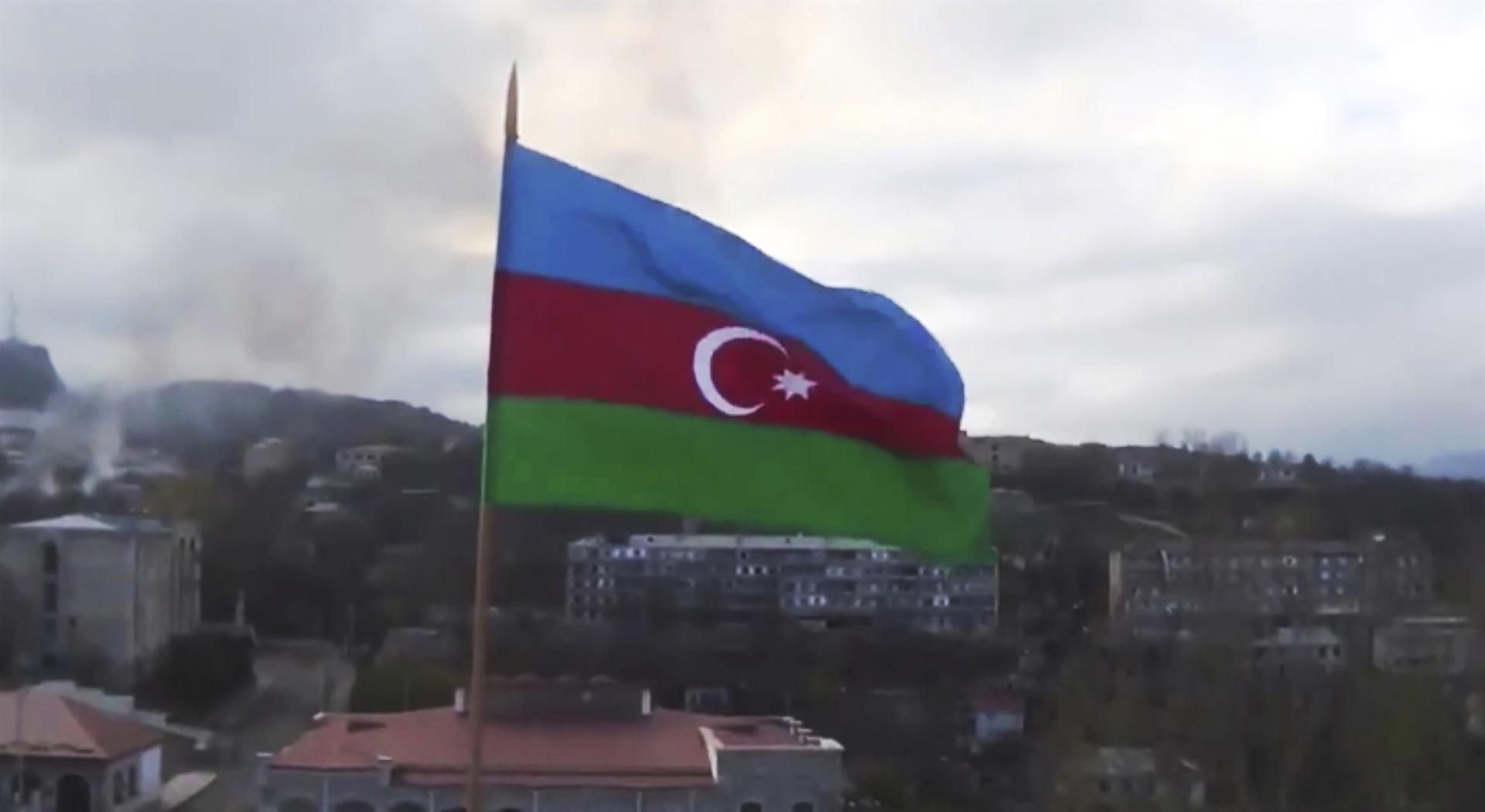
Armenia and Azerbaijan announced an agreement early on Nov. 10 to halt fighting over the Nagorno-Karabakh region of Azerbaijan under a pact signed with Russia that calls for the deployment of nearly 2,000 Russian peacekeepers and territorial concessions.
Nagorno-Karabakh has been under the control of ethnic Armenian forces backed by Armenia since a 1994 truce ended a separatist war in which an estimated 30,000 people died. Sporadic clashes occurred since then, and full-scale fighting began on Sept. 27.
Several cease-fires had been called but were almost immediately violated. However, the agreement announced early on Nov. 10 appeared more likely to take hold because Azerbaijan has made significant advances, including taking control of the strategically key city of Shushi on Nov. 8.
Armenian Prime Minister Nikol Pashinian said on Facebook that calling an end to the fight was "extremely painful for me personally and for our people."
The agreement calls for Armenian forces to turn over control of some areas it held outside the borders of Nagorno-Karabakh, including the eastern district of Agdam. That area carries strong symbolic weight for Azerbaijan because its main city, also called Agdam, was thoroughly pillaged, and the only building remaining intact is the city's mosque.
Armenians will also turn over the Lachin region, which holds the main road leading from Nagorno-Karabakh to Armenia. The agreement calls for the road, the so-called Lachin Corridor, to remain open and be protected by Russian peacekeepers.
Russian peacekeeping troops deployed to the war-ravaged enclave in the early hours of Nov. 10 as part of a the ceasefire deal.
The Russian defense ministry said it had started deploying 1,960 servicemen, who were en route to an unnamed airbase to be airlifted along with their equipment and vehicles.
The agreement also calls for transport links to be established through Armenia linking Azerbaijan and its western exclave of Nakhcivan, which is surrounded by Armenia, Iran and Turkey.
Azerbaijani forces on Nov. 9 shot down a Russian helicopter that was flying over Armenia near the border with Nakhchivan, killing two servicemen. Azerbaijan's foreign ministry said the helicopter was flying low and "in the context of these factors and in light of the tense situation in the region and increased combat readiness in connection with possible provocations of the Armenian side, the duty combat crew decided to open fire to kill."
The seizure of Shushi, which Azerbaijani President Ilham Aliyev claimed on Nov. 8 and was confirmed by Nagorno-Karabakh's presidential spokesman on Nov. 9, gave Azerbaijan a significant strategic advantage. The city is positioned on heights overlooking the regional capital of Stepanakert, 10 kilometers to the north.
Anger in Armenia
But the agreement sparked outrage in Armenia, with angry protesters storming the government headquarters in the capital Yerevan where they ransacked offices and broke windows.
Many were shouting: "We won't give up our land!"
Some of them broke into the main government building, saying they were searching for Pashinian, who apparently had already departed.
Azerbaijan achieved 'sacred success': Turkey
Turkey said on Nov. 10 that a deal to end more than a month of fighting in Nagorno-Karabakh had secured important gains for its close ally Azerbaijan in the conflict with Armenia.
"The brotherly Azerbaijan has achieved an important gain on the battleground and table. I sincerely congratulate this sacred success," Turkey's Foreign Minister Mevlüt Çavuşoğlu said on Twitter.
"We will continue to be one nation, one spirit with our Azeri brothers."
Turkey had accused Armenia of occupying Azerbaijani lands and vowed full solidarity with Azerbaijan, with which it has close ethnic Turkic ties.